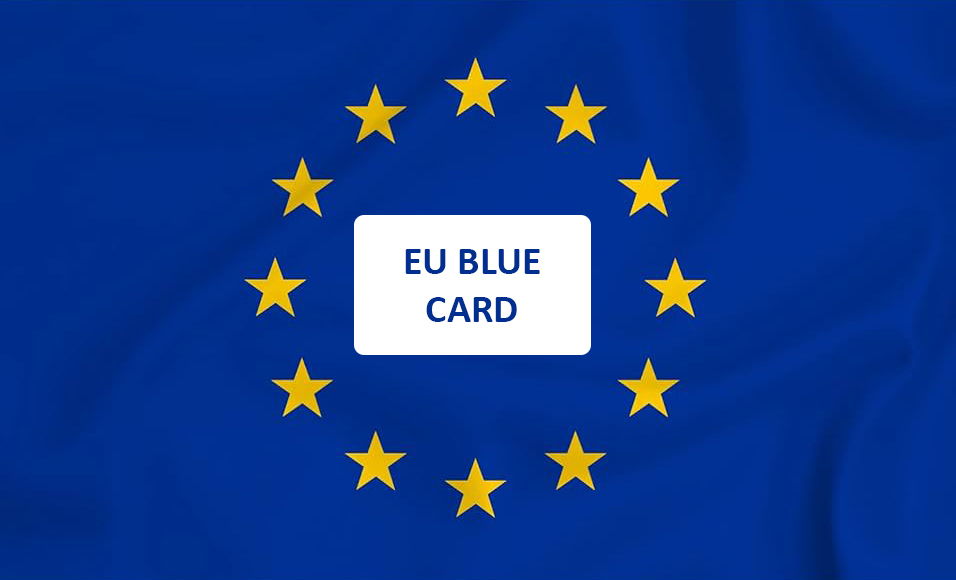How to Get a EU Blue Card in 2024
Are you a highly skilled professional from outside the EU who wants to work and live in Europe? If so, you may be eligible for a EU Blue Card, a residence and work permit that grants you access to the EU labor market and many benefits. In this post, we will explain what the EU Blue Card is, what the requirements and benefits are, and how to apply for one.
What is the EU Blue Card?
The EU Blue Card is a scheme that was launched in 2009 to attract and retain qualified non-EU workers in the EU. It is based on a directive that harmonizes the conditions and procedures for issuing the Blue Card across 25 EU member states (except Denmark, Ireland, and the UK).
The EU Blue Card is valid for up to four years and can be renewed. It also allows you to travel and stay in other EU countries for up to 90 days in any 180-day period. You can also bring your family members with you and enjoy equal treatment with the nationals of the country where you work.
The EU Blue Card is not only a residence and work permit, but also a potential pathway to permanent residence and citizenship in the EU. After 18 months of regular employment in one EU country, you can move to another EU country to take up another highly qualified job. After five years of continuous residence in the EU, you can apply for long-term residence status. Depending on the country, you may also be eligible for naturalization after a certain period of time.
What are the requirements for the EU Blue Card?
To apply for the EU Blue Card, you must meet the following general criteria:
- You must have a valid passport and, if required, a visa to enter the Schengen area.
- You must have a higher professional qualification, such as a bachelor’s degree or five years of senior professional experience in your field.
- You must have a binding job offer or a work contract for at least one year in an EU country, for a highly qualified position that matches your qualification.
- You must meet the minimum salary threshold in the EU country where you want to work. The salary threshold varies by country and by profession, but it is usually around 1.5 times the average gross annual salary in the country.
In addition to these general criteria, each EU country may have some specific requirements for the EU Blue Card, such as language skills, health insurance, or recognition of qualifications. You can find more information on the country-specific requirements on the EU Immigration Portal.
What are the benefits of the EU Blue Card?
The EU Blue Card offers many advantages for you and your family, such as:
- A competitive salary and a favorable tax system in the EU.
- A high level of social security and health care in the EU.
- A multicultural and multilingual environment in the EU, with three official languages (English, French, and German) and many others spoken.
- A strategic location in the heart of Europe, with easy access to other countries and cities.
- A diverse and vibrant culture in the EU, with festivals, traditions, and a rich history.
The EU Blue Card also gives you the opportunity to advance your career and expand your network in the EU. You can work in different sectors and industries, and collaborate with leading experts and innovators in your field. You can also participate in training and education programs, and benefit from the recognition of your qualifications and skills in the EU.
How to apply for the EU Blue Card?
The application process for the EU Blue Card varies by country, but it usually involves the following steps:
- Find a suitable job offer or work contract in an EU country that participates in the EU Blue Card scheme. You can use online platforms such as EURES, Indeed, or LinkedIn to search for jobs in the EU.
- Check the requirements and conditions for the EU Blue Card in the country where you want to work. You can find the relevant information on the EU Immigration Portal or the official websites of the national authorities.
- Gather the necessary documents for the EU Blue Card application, such as your passport, diploma, work contract, salary statement, and health insurance. You may also need to provide translations, copies, or apostilles of some documents.
- Submit your application for the EU Blue Card online or by mail to the competent authority in the country where you want to work. Depending on the country, the authority may be the embassy, the consulate, the immigration office, or the labor office. You may also need to pay a fee for the application.
- Wait for the decision on your EU Blue Card application, which may take up to three months. If your application is approved, you will receive an authorization to stay, which you can use to obtain a visa (if required) and a residence permit from the local authorities.
Conclusion
The EU Blue Card is a great option for highly skilled non-EU workers who want to work and live in Europe. It offers many benefits and opportunities for you and your family, as well as a chance to become a permanent resident and citizen of the EU. If you meet the requirements and have a job offer in an EU country, you can apply for the EU Blue Card and start your journey to the EU.
Heinrich Busumuru is a seasoned contributor to Nfinithub.com, where they provide their specialized knowledge on a wide range of subjects, including finance, technology, gaming, travel, and more. Their enthusiasm for learning and sharing insights is evident in each of their contributions. Heinrich possesses extensive expertise and experience in the technology industry, with a particular focus on IT and electrical engineering.


Leave a Reply